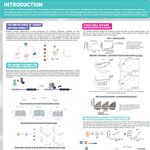Assistant Professor of Dermatology, Northwestern University Feinberg School of Medicine
BIOGRAPHY
Date: June 26, 2024 Time: 12:00pm PDT, 2:00pm CDT, 3:00pm EDT
Tape strip proteomic profiling for tumor-associated biomarker discovery
Speaker
Event Date & Time
Date: June 26, 2024
Time: 12:00pm PDT, 2:00pm CDT, 3:00pm EDT
THE INFORMATION PRESENTED TODAY IS NOT PUBLISHED AND WILL NOT BE AVAILABLE FOR ON-DEMAND VIEWING AT THIS TIME.
WE WILL INFORM YOU VIA EMAIL WHEN THIS WEBINAR IS APPROVED FOR REPLAY.
Abstract
Mycosis fungoides (MF), the most common type of cutaneous T-cell lymphoma, is characterized by malignant T-cell skin infiltration leading to inflammation and skin barrier defects. To effectively monitor disease activity, reproducible biomarkers in MF skin are essential. Skin tape-stripping is emerging as an easy and non-invasive method for tracking disease biomarkers. Tape stripping was performed on 39 patients with MF and 21 healthy volunteers at matched sites, after which protein levels in tape skin extracts were assessed using the proximity extension assay technology. Differential expression analysis revealed a total of 24 proteins upregulated in MF lesional skin, compared to MF non-lesional and healthy skin, spanning pathways of macrophage activation, angiogenesis, immune cell migration, malignant T-cell survival, apoptosis, and skin inflammation. Moreover, these differentially expressed proteins were associated with the MF microenvironment and certain MF clinical characteristics, supporting the use of tape strip proteomics for tracking skin disease activity and therapeutic response in MF.
Learning Objectives
- Discover which differentially expressed proteins were found to be upregulated in MF patients compared to healthy controls by performing proteomic profiling of tape skin extracts.
- Learn about the associations between these proteins and biological processes such as macrophage activation, angiogenesis, immune cell migration, and malignant T-cell survival.
- Understand how these proteins are linked to MF microenvironment features and clinical characteristics."
Webinars will be available for unlimited on-demand viewing after live event.
You May Also Like
Loading Comments...






